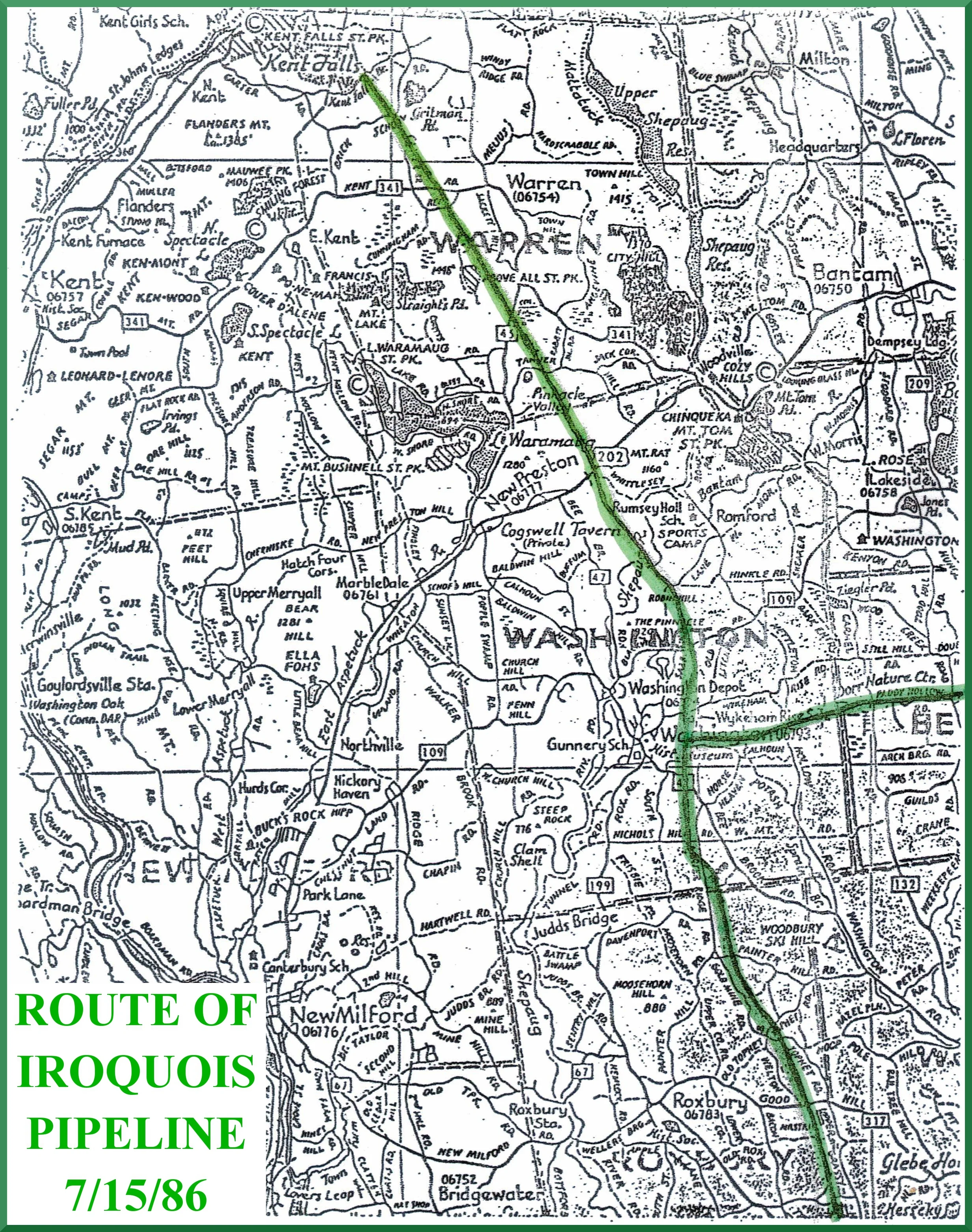WEC helped start Washington's first recycling program in 1972.
Proposed route of the Iroquois Pipeline. The pipeline would have run through the center of Washington.
History
The Washington Environmental Council, Inc. was incorporated in 1972 under the direction and vision of its founder, writer and naturalist Michael Harwood. The council has pursued its mission over the years to provide leadership in maintaining, protecting, and enhancing the environmental quality of life in our area. As Harwood once wrote, “ One night last winter, friends and I got talking about starting a local nature club, as we sat together after dinner with our whiskeys and big ideas.” The council’s origin as an early advocate of recycling has evolved and adapted as a non-profit organization dedicated to maintaining, protecting, and enhancing the environmental quality for the town of Washington for decades to come.
In conjunction with other local environmental groups, WEC has participated in various local major environmental initiatives. From 1986-1989 WEC played an active role in successfully diverting the threat of the Iroquois Gas pipeline from traveling through the heart of Washington and surrounding communities. In 1999, WEC’s advocacy in the year-long dispute over air quality degradation with the Sempra Power Plant in New Milford concluded with the plant being denied a permit. Six years later, the decades-long Shepaug River dispute with the town of Waterbury, that was supported by WEC and other organizations, was settled with Waterbury being required to release twelve million gallons of water per day from its reservoir system into the river in order to preserve the ecological health of the Shepaug.
Single stream recycling came to Washington in 2013 enhanced by strong WEC activism. Two years later, the council lobbied heavily for a town ordinance banning the storage and disposal of fracking waste in our towns. More recently, WEC supported and continues to support local businesses in banning the use of single use plastics. And as the town of Washington currently revisits how we manage our organic waste and glass, WEC will play a vital role in the conversations and planning that will affect our land for years to come.
As our environmental challenges change, WEC is committed to educating citizens of our towns and our future generations to meet the rising demands of climate change. Every year we have been committed to awarding scholarships to students interested in studying, pursuing, and participating in Environmental Studies. Our Harwood Lecture Series, established in 1992, is designed to attract leading speakers of environmental issues to offer lectures that are open to the public.
With the support of our devoted directors, generous donors, and our annual appeals, WEC is able to continue acting as a visible watchdog for local environmental concerns that have broad and global implications, and to discourage environmental degradation before it occurs.


